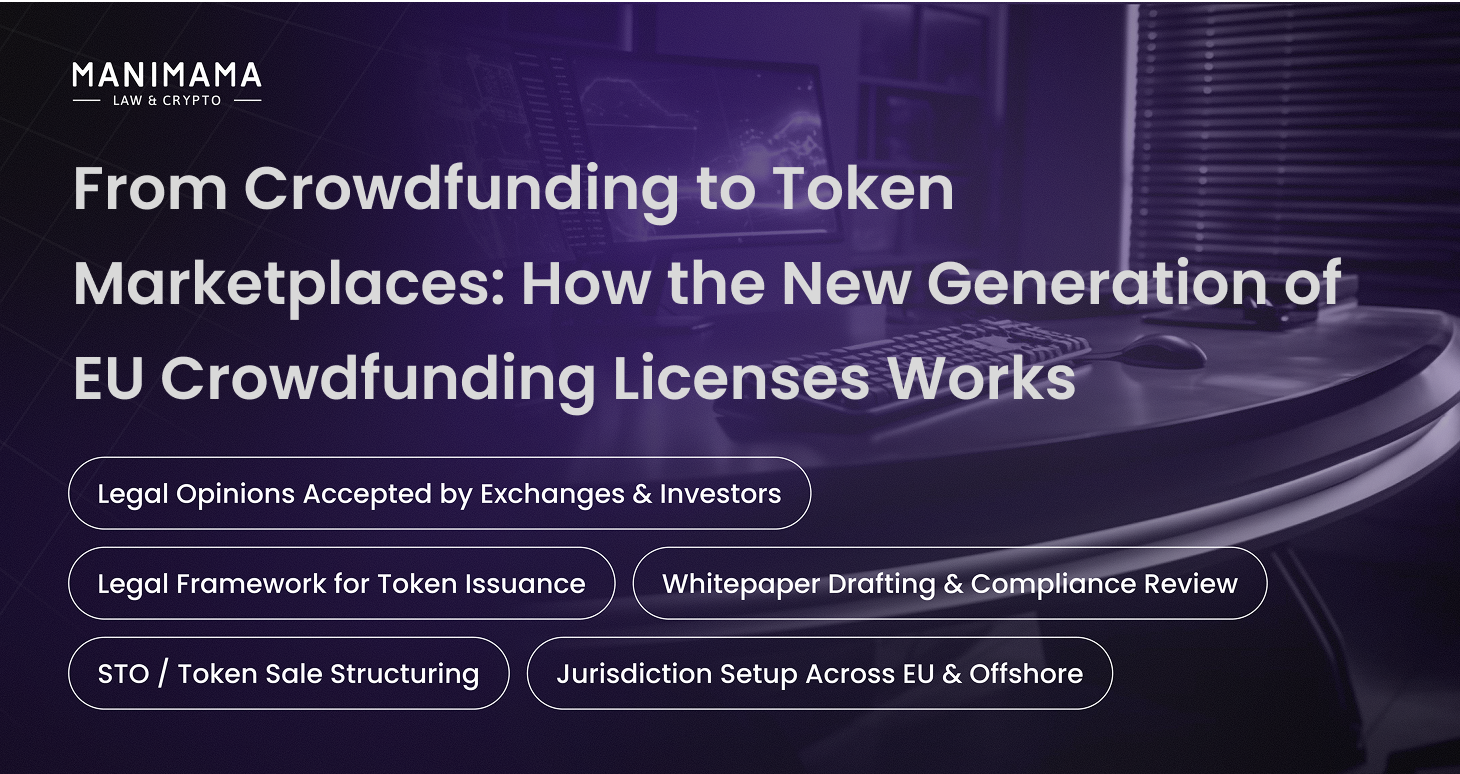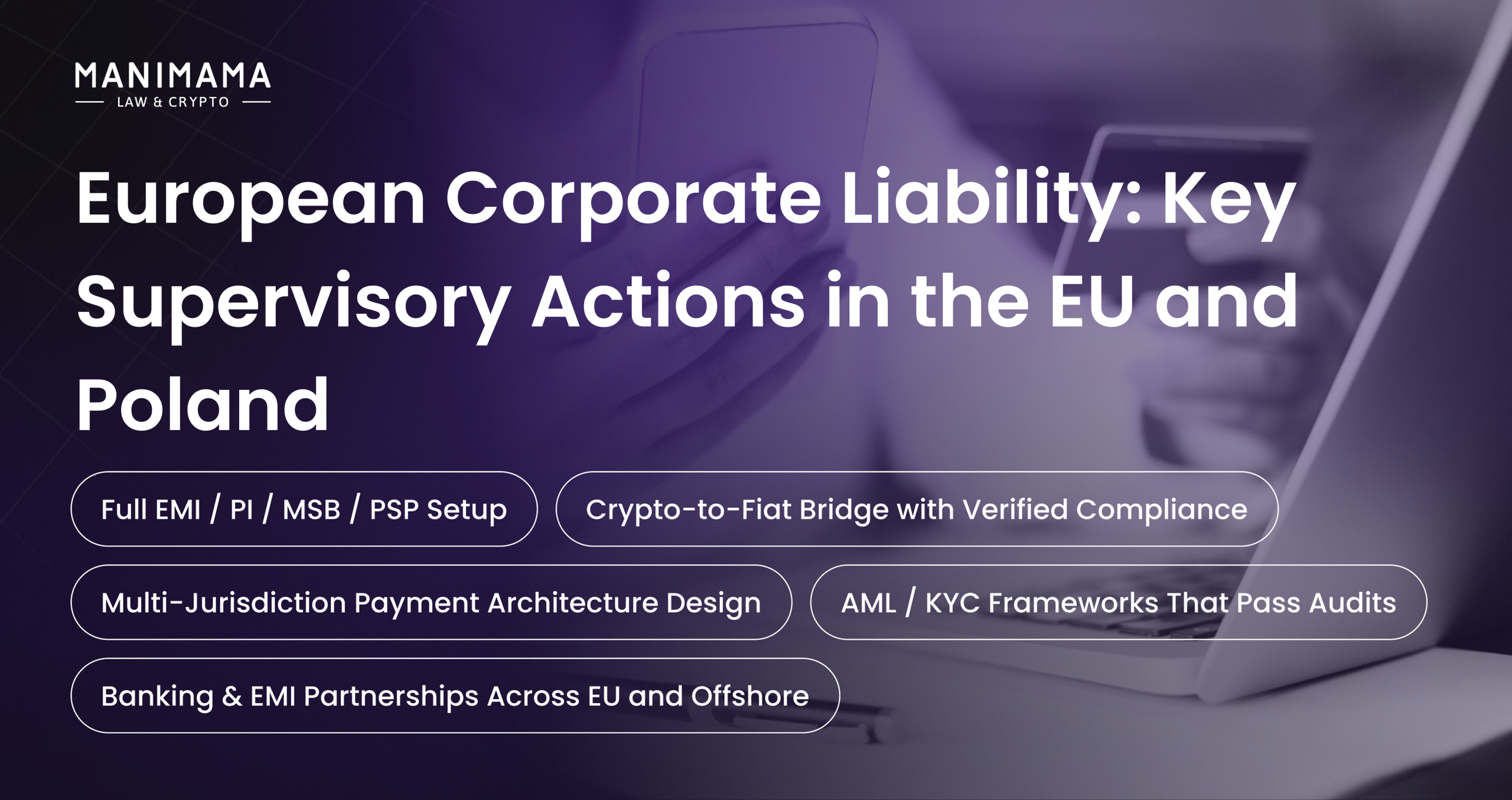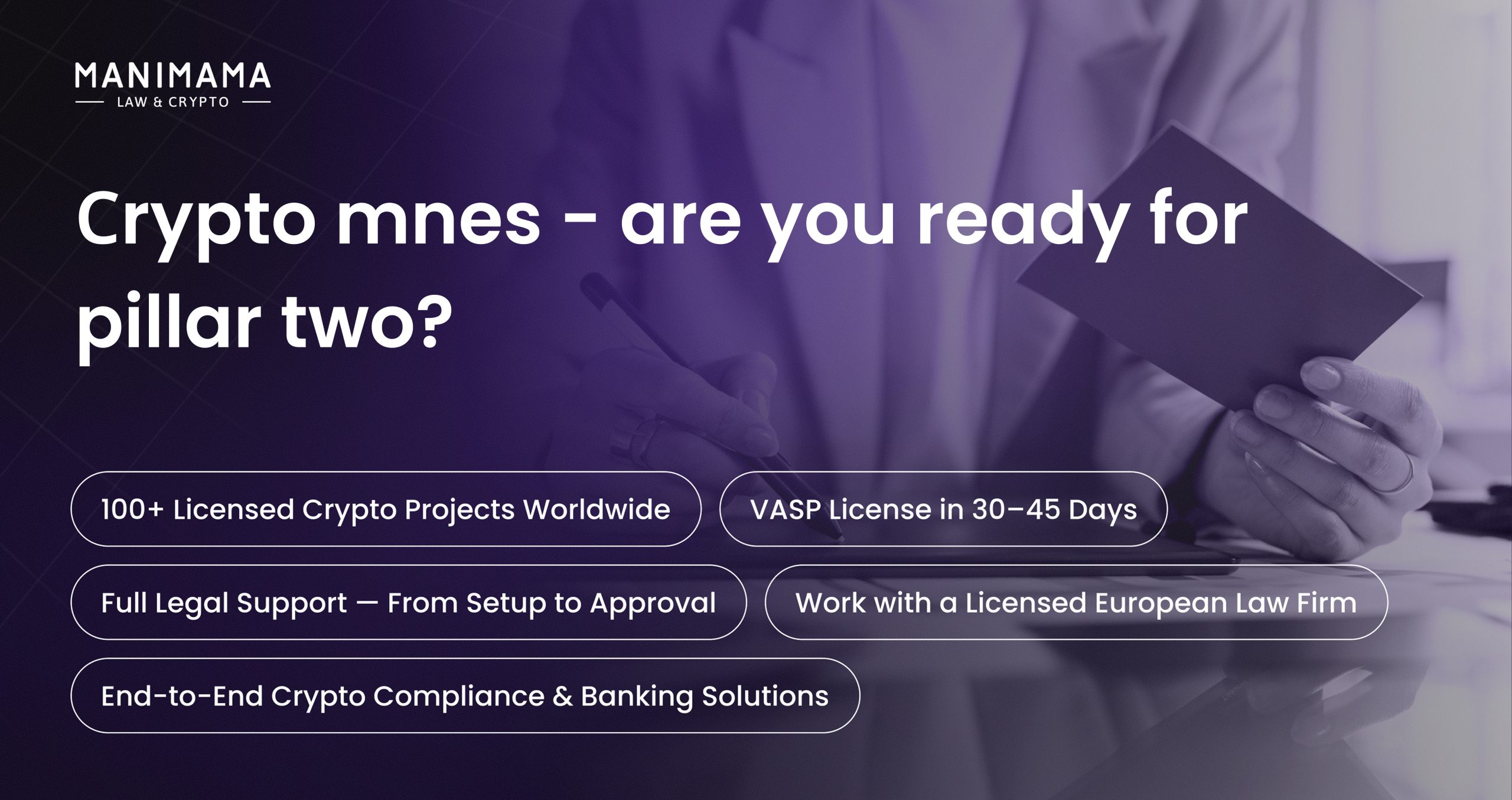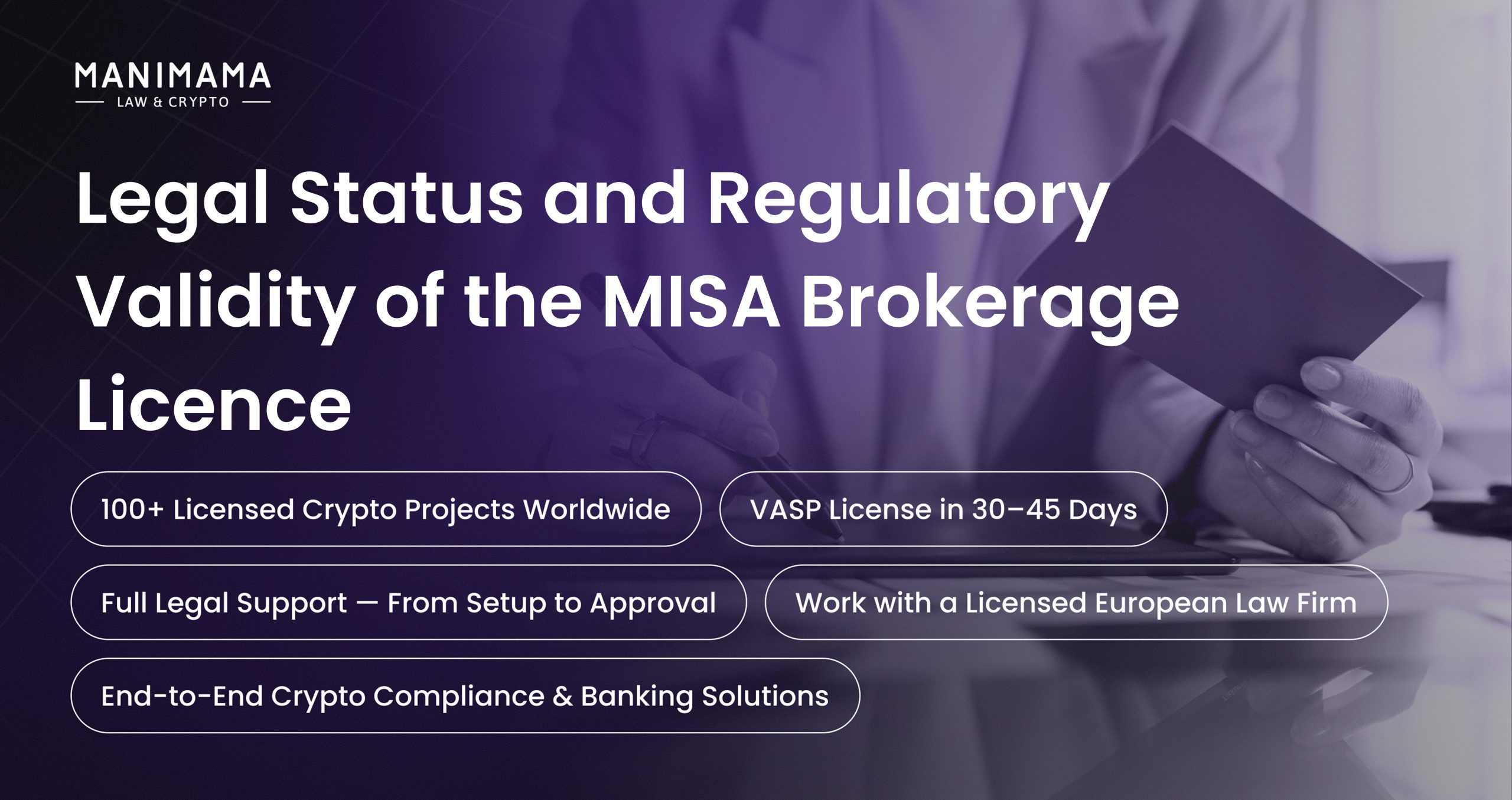Just a few years ago, crowdfunding was associated mainly with creative projects and donations. But by 2025, it has become part of the formal financial market – with its own European license, investor protection, and a clear path toward transformation into token marketplaces.
The European Union has built a regulatory framework that allows startups and businesses to raise capital legally, while investors receive shares or income expressed in digital form.
Thus, a new generation of crowdfunding platforms emerges – at the intersection of fintech, tokenization, and regulated investments.
1. EU Crowdfunding: The Legal Foundation of the New Fintech
The EU has established a unified framework for all member states – Regulation (EU) 2020/1503, known as the ECSP Regulation (European Crowdfunding Service Providers). It introduces a single EU-wide license for crowdfunding platforms – the ECSP License, valid across all member states under the passporting principle.
What does this mean in practice?
A single company can obtain authorization in one country (for example, Lithuania or Estonia) and legally raise investments from users across the entire European Union – without establishing subsidiaries in each country.
The license covers two main models:
- Lending-based crowdfunding – where investors lend money to a business;
- Equity-based crowdfunding – where investors acquire shares or other financial instruments of a company admitted for offering on a crowdfunding platform.
To obtain a license, a platform must demonstrate:
- the existence of a compliance and AML/KYC framework;
- safeguarding of investors’ funds via a credit or payment institution using segregated accounts opened with an authorized bank or payment service provider (PSP);
- transparent and non-discriminatory project selection procedures;
- effective conflict resolution and risk management mechanisms;
- investor protection measures, including: a knowledge and experience test; loss-bearing simulation, a reflection period for non-sophisticated investors, and preparation of a Key Investment Information Sheet (KIIS).
2. From Crowdfunding to Tokens: The Legal Transformation
The most interesting developments are happening now – as the ECSP Regulation meets the DLT Pilot Regime.
The European regulator has effectively opened the path toward investment tokenization, creating a foundation for transforming crowdfunding platforms into regulated token marketplaces.
How it works:
- a company raises funding via an ECSP platform;
- shares or debt instruments can be represented as tokens on a blockchain;
- secondary trading of such tokens is allowed only on licensed trading venues – within ECSP, only a bulletin board (without matching or executing trades) is permitted;
- transparency is ensured through smart contracts and a public ledger of transactions.
Thus, crowdfunding becomes a launchpad for real-world asset (RWA) tokenization – from real estate and green energy to startup equity and private funds.
An ECSP platform may integrate DLT infrastructure to issue tokenized financial instruments (security tokens under MiFID II/Prospectus definitions) and even facilitate their listing/trading on separately licensed marketplaces.
Legally, this marks a shift from a simple “fundraising platform” to a fully-fledged financial intermediary that:
- performs investor onboarding, identification, and categorization;
- maintains ownership records via tokens;
- ensures disclosure, whitepapers, and audit trails.
Important:
- If tokens qualify as financial instruments, the crypto-asset framework for non-financial tokens does not apply.
- If tokens are non-financial (i.e., not financial instruments under MiFID II), they fall outside ECSP/MiFID scope and require a separate compliance analysis under applicable national/EU rules.
3. New Opportunities for Businesses and Investors
The ECSP License turns crowdfunding from “fundraising” into a regulated capital-raising process – designed for tokenization and secondary trading.
For businesses – a legal path to tokenized capital
Instead of an expensive Initial Public Offering or a complex prospectus:
- a company can issue tokenized shares or debt instruments;
- up to EUR 5 million within 12 months per project owner under ECSP;
- access investors across the EU through passporting.
The result: shorter timelines to enter regulated markets, reduced transaction costs, and readiness for organized secondary trading (e.g., on a DLT trading venue) – all within a single regulatory framework.
For investors – a protected and digital experience
- verified projects with transparent risk disclosures;
- diversified portfolios through tokenized assets (equity/debt/RWA);
- protection and transparency ensured by KYC/AML and compensation mechanisms.
Thus, investors benefit from clear rules, digital assets, and low-barrier access to new investment opportunities.
Regulatory safeguards include:
- Suitability test: verifying investor understanding of risks;
- Information disclosure: standardized KIIS with project and investment terms;
- Mandatory risk warnings: clear and prominent, no “fine print”;
- Transparent fees: clear remuneration rules for platforms and intermediaries.
The result is a blend of protection and efficiency: investors gain a digital, regulated experience, while companies obtain a legally compliant tokenized capital structure suitable for EU secondary markets.
4. The Role of Manimama Law Firm
The Manimama Law Firm assists businesses in making this transition – from traditional crowdfunding to token marketplaces – in a legal, secure, and strategically beneficial way.
We provide end-to-end support in:
- preparing the full documentation package for obtaining an ECSP License in the chosen jurisdiction (Lithuania, Estonia, Poland, Spain, etc.);
- legal structuring of tokenized crowdfunding platforms in line with MiFID II/Prospectus, the DLT Pilot Regime, and national laws (including regimes applicable to non-financial digital assets);
- adapting Terms of Use, Investor Agreements, AML Policies, and Risk Disclosures;
- integrating blockchain solutions compliant with EU operational resilience requirements under DORA;
- creating legal models for tokenized shares, bonds, or revenue-share instruments.
💡 We help companies not only obtain a license but also build a scalable financial ecosystem with clear separation between regimes for financial and non-financial instruments.
5. Crowdfunding as the Future of Tokenization
Crowdfunding is no longer merely a fundraising mechanism.
It has become a digital investment model that gives businesses freedom and users the ability to participate in real, tangible projects.
The combined framework of ECSP Regulation, MiFID II/Prospectus (for tokenized financial instruments) and the DLT Pilot Regime paves the way for fully licensed token marketplaces, where digital assets have legal recognition and investors enjoy full regulatory protection.
💡 Manimama Law Firm supports projects at every stage – from license application to launch of the tokenized platform.
Our contacts
If you want to become our client or partner, feel free to contact us at support@manimama.eu.
Or use our telegram @ManimamaBot and we will respond to your inquiry.
We also invite you to visit our website: https://manimama.eu/.
Join our Telegram to receive news in a convenient way: Manimama Legal Channel.
The content of this article is intended to provide a general guide to the subject matter, not to be considered as a legal consultation.











